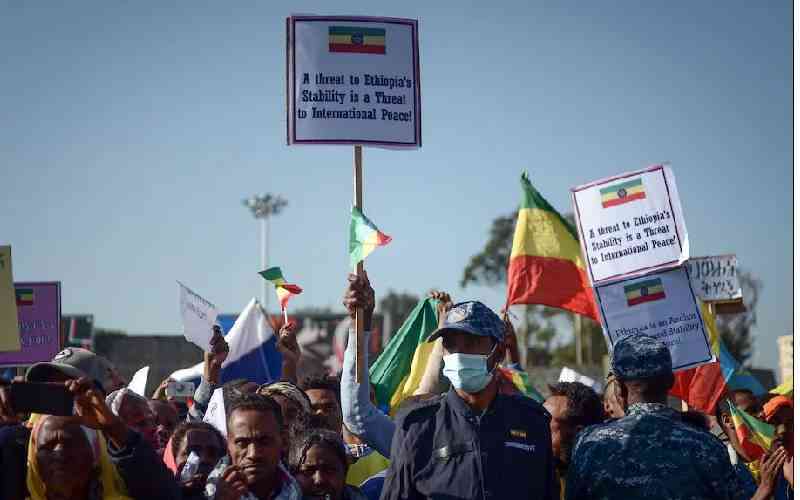×
The Standard e-Paper
Kenya’s Boldest Voice

Ethiopians protest against what they say is interference by outsiders in the country's internal affairs and against the Tigray People's Liberation Front (TPLF). [File, AP]
Peace talks to end Ethiopia's devastating Tigray conflict have begun in South Africa, a South African government spokesman said Tuesday. It is the highest-level effort yet to end two years of fighting that has killed perhaps hundreds of thousands of people.